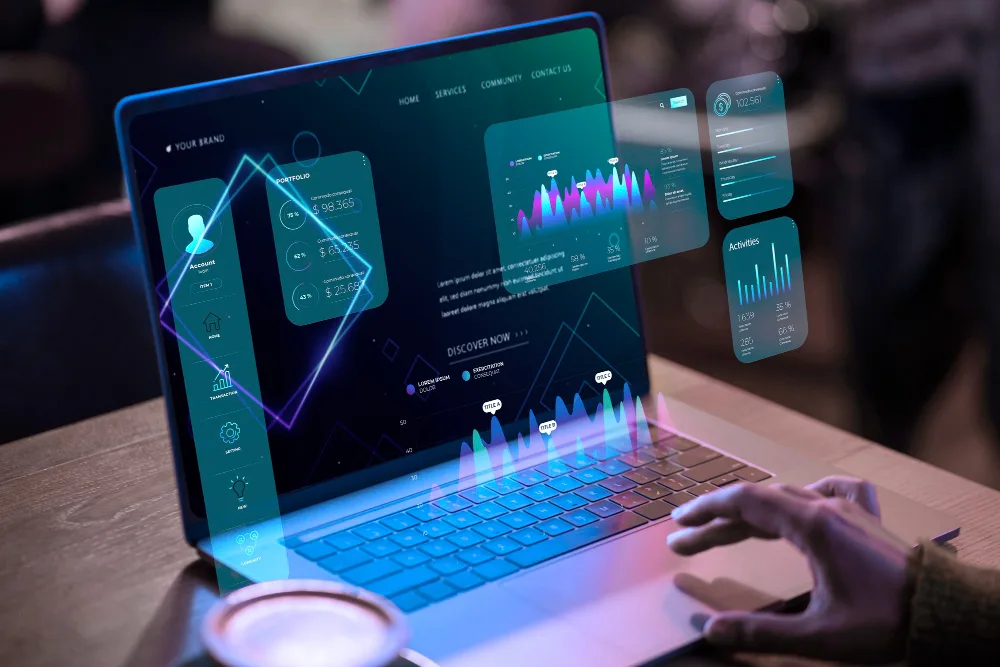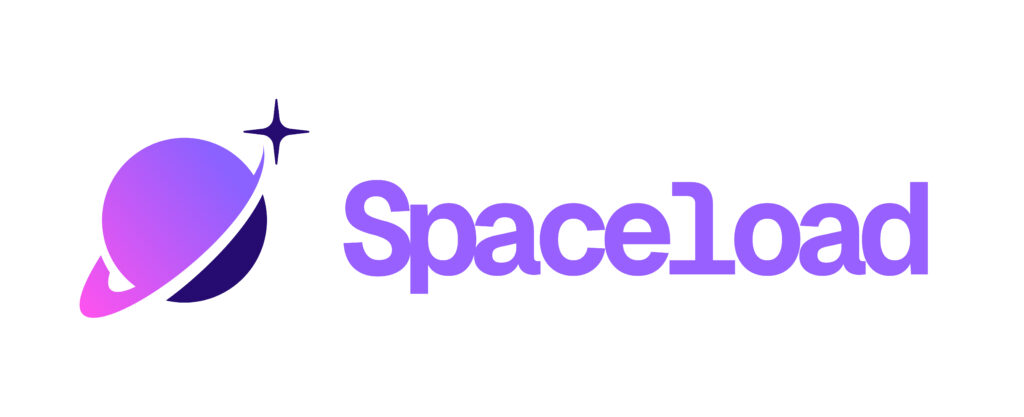AI SEO is transforming how websites rank in search engines. If you’ve been wondering what this technology means and whether your website needs it, you’re in the right place. Moreover, this comprehensive guide explains everything about artificial intelligence in search optimization using simple terms.
What is AI SEO?
AI SEO (Artificial Intelligence Search Engine Optimization) uses artificial intelligence technologies to improve your website’s search engine rankings. Unlike traditional methods, this approach leverages machine learning, natural language processing, and automated analysis to optimize content more effectively.
Furthermore, think of it this way: traditional optimization was like manually digging for gold with basic tools, while this modern approach is like having smart machinery that knows exactly where to dig and works continuously without breaks.

Key Differences: Traditional SEO vs Modern AI Approach
Traditional SEO includes:
- Manual keyword research using basic tools
- Time-consuming content analysis
- Reactive approach to algorithm changes
- Limited data processing capabilities
In contrast, modern AI approach offers:
- Predictive keyword analysis and trend forecasting
- Real-time content optimization suggestions
- Proactive adaptation to search engine updates
- Processing of massive data sets instantly
Why AI SEO Matters in 2025
The digital landscape has evolved dramatically. However, here’s why artificial intelligence in search optimization has become essential:
1. Google’s AI-Powered Algorithms
Google now uses sophisticated AI systems like RankBrain and BERT. Consequently, these algorithms understand search intent better than ever before. Additionally, they analyze context rather than just keywords, which means your content must match user intent perfectly.
2. Rise of AI Overviews
Over 13% of searches now trigger AI Overviews—those AI-generated answers appearing at the top of search results. Therefore, if your content isn’t optimized for these features, you’re missing significant visibility opportunities.
3. Zero-Click Searches Increasing
More than 60% of searches result in zero clicks, meaning users find answers directly from AI-generated responses. Subsequently, your content needs strategic structuring so AI can understand and cite it effectively.
4. Increased Competition
With AI tools making content creation easier, online content volume has exploded. As a result, only the highest quality, most relevant content achieves top rankings.
The 5 Core Components of AI-Powered Search Optimization
Understanding this technology requires knowing its five essential components. Specifically, each component works together to create a comprehensive optimization strategy:
1. AI-Powered Keyword Research
Traditional keyword research provided basic search volumes and competition scores. In contrast, intelligent keyword research delivers advanced insights:
- Predictive Analysis: Identifies trending keywords 4-6 weeks before traditional tools
- Semantic Clustering: Groups keywords by actual user intent
- Gap Analysis: Discovers keyword opportunities competitors miss
For example: Instead of targeting “running shoes,” artificial intelligence might identify “best running shoes for flat feet marathon training” as a high-opportunity long-tail keyword.
2. Smart Content Optimization
This technology doesn’t just help write content—it creates content that ranks. Additionally, it provides:
- Real-time optimization suggestions based on top-ranking pages
- Natural semantic keyword integration
- Readability improvements for better user experience
- Content structure optimization for featured snippets
3. Technical SEO Automation
Meanwhile, artificial intelligence handles many technical optimization tasks automatically:
- Comprehensive site audits identifying priority issues
- Page speed optimization recommendations
- Automated schema markup generation
- Strategic internal linking suggestions
4. User Experience Intelligence
Furthermore, machine learning analyzes actual user interactions with your site:
- Behavior pattern analysis for improved page layouts
- Conversion path optimization
- Personalized content recommendations
- Mobile experience enhancement
5. Competitive Intelligence
Finally, intelligent systems monitor competitors in real-time:
- Keyword ranking changes as they occur
- Content gap identification
- Backlink opportunity discovery
- SERP feature tracking
How AI SEO Works: Behind the Scenes
Understanding implementation involves four key stages:
Step 1: Data Collection
Initially, AI systems continuously gather data from:
- Search engine results pages (SERPs)
- User behavior patterns
- Competitor activities
- Content performance metrics
- Technical site health indicators
Step 2: Pattern Recognition
Next, machine learning algorithms identify patterns in:
- High-ranking content characteristics
- User interaction behaviors
- Technical factors affecting rankings
- Seasonal trends and fluctuations
Step 3: Predictive Analysis
Subsequently, AI predicts:
- Emerging keyword trends
- Content topics likely to perform well
- Algorithm changes that might affect your site
- Optimal content publication timing
Step 4: Automated Implementation
Finally, AI automatically:
- Generates optimized meta descriptions
- Creates strategic internal linking suggestions
- Fixes technical SEO issues
- Updates content based on performance data
Real-World Success Stories
Let me share concrete examples demonstrating artificial intelligence effectiveness in search optimization:
E-commerce Success: An online retailer implemented intelligent optimization for product descriptions, achieving a 150% increase in organic traffic within six months.
SaaS Achievement: A software company used AI-powered content optimization, improving their average ranking position from page 3 to page 1 for target keywords.
Local Business Growth: A dental practice leveraged smart automation for local optimization, increasing appointment bookings by 200% through enhanced local search visibility.
Traditional vs Modern AI Approach: Complete Comparison
| Feature | Traditional SEO | AI SEO |
|---|---|---|
| Speed | Manual analysis takes days | Intelligent analysis in minutes |
| Accuracy | Limited data analysis | Processes millions of data points |
| Scalability | Human capacity constraints | Unlimited scaling potential |
| Adaptability | Reactive to changes | Proactive and predictive |
| Personalization | Generic approaches | Customized by user behavior |
Common Myths About AI SEO Debunked
Myth 1: “Artificial intelligence will replace SEO professionals”
Reality: Conversely, this technology enhances human expertise but cannot replace strategic thinking and creativity.
Myth 2: “AI-generated content automatically ranks well”
Reality: Instead, Google prioritizes quality and value, regardless of whether artificial intelligence created the content.
Myth 3: “AI SEO is only for large companies”
Reality: Actually, many intelligent optimization tools offer affordable pricing designed for small businesses.
Myth 4: “This technology is too complicated for beginners”
Reality: Surprisingly, modern tools feature user-friendly interfaces with minimal learning curves.
Getting Started: Your Action Plan
Ready to implement AI SEO? Nevertheless, here’s your step-by-step roadmap. Furthermore, this approach ensures systematic implementation for maximum results:
Phase 1: Foundation (Week 1-2)
- Audit current optimization using AI-powered tools
- Identify quick wins with low-difficulty keywords
- Set up automated monitoring for rankings and traffic
Phase 2: Optimization (Week 3-6)
- Implement intelligent content optimization for existing pages
- Create new content using smart keyword research
- Fix technical issues identified through automated audits
Phase 3: Scale (Month 2-3)
- Automate routine tasks like meta descriptions and internal linking
- Expand keyword targeting using predictive analysis
- Monitor and adjust based on performance data
The Future: Emerging Trends
Here’s what to expect in artificial intelligence search optimization evolution. Notably, several trends are developing. Moreover, these changes will reshape how we approach search optimization:
Voice Search Optimization
With smart speakers becoming mainstream, intelligent systems will increasingly optimize for conversational queries.
Visual Search Integration
Similarly, machine learning will optimize images and videos for visual search engines.
Hyper-Personalization
Meanwhile, advanced algorithms will create personalized search experiences based on individual user behaviors and preferences.
Real-Time Adaptation
Ultimately, smart systems will adjust optimization strategies instantly based on algorithm changes and market shifts.
Common Challenges and Solutions
Challenge 1: Information Overload
Problem: Unfortunately, intelligent systems generate overwhelming amounts of data
Solution: Instead, focus on actionable insights and establish clear KPIs
Challenge 2: Tool Dependency
Problem: Over-reliance on automation without understanding fundamentals
Solution: Rather, use technology to enhance, not replace, your optimization knowledge
Challenge 3: Content Quality Concerns
Problem: Often, AI-generated content lacks human creativity
Solution: Therefore, use automation for optimization and ideation while humans handle creativity and strategy
Frequently Asked Questions About AI SEO
What is AI SEO in simple terms?
Essentially, AI SEO uses artificial intelligence to make websites more visible in search engines by automating optimization tasks, predicting trends, and analyzing massive amounts of data.
How does AI help with SEO?
Primarily, AI helps by automating keyword research, optimizing content in real-time, fixing technical issues, and providing predictive insights about ranking potential.
Do I need AI for SEO success?
While not absolutely required, AI tools provide significant advantages in speed, accuracy, and scalability that are difficult to achieve manually.
Will AI replace human SEO experts?
Definitely not. Instead, AI enhances human expertise but cannot replace strategic thinking, creativity, and business goal understanding that humans provide.
What’s the difference between AI SEO and traditional SEO?
Essentially, AI SEO uses machine learning and automation to optimize websites faster and more accurately, while traditional SEO relies on manual analysis and implementation.
Are AI SEO tools expensive?
Fortunately, many AI SEO tools offer affordable plans starting around $20-50 monthly, making them accessible to small businesses and individuals.
How long does it take to see AI SEO results?
Typically, you can see initial improvements within 2-4 weeks, with significant results usually visible within 3-6 months.
Can AI SEO work for local businesses?
Absolutely! In fact, AI SEO is particularly effective for local optimization, helping improve Google Business profiles, local content, and location-based keywords.
Your Next Steps: Implementation Today
Clearly, AI SEO isn’t just the future—it’s the present reality. Moreover, businesses using artificial intelligence for search optimization are already experiencing dramatic improvements in rankings, traffic, and conversions.
Importantly, the question isn’t whether you should adopt this technology, but how quickly you can implement it effectively.
Start with one intelligent optimization tool, focus on your highest-impact opportunities, and gradually expand your AI-powered efforts. Additionally, remember that the goal isn’t replacing human expertise but amplifying it with smart automation.
Ready to transform your search strategy? Obviously, the time to start is now—because while you’re considering it, your competitors might already be implementing these powerful strategies.
Looking for AI-powered SEO solutions? Explore our automated SEO reporting tools that use artificial intelligence to transform your search optimization strategy and deliver measurable results.



